Modeling the application possibilities of cargo bikes, based on the geometrical structure of the logistics network
Actual participants of the project: Dávid Lajos Sárdi, Krisztián Bóna, Ph.D.
Past participants of the project: Bálint Mészáros, Ádám Róka
Start of the project: February 2016
Nowadays, cargo bikes are playing an increasingly important role in urban logistics, supplying an increasing proportion of freight transport processes with this equipment, and as a result, many projects and research are being conducted in this field worldwide. One of the significant advantages of cargo bikes is that they are able to perform their tasks in an environment-friendly way while they are not hindered by heavy urban traffic. If they have access to a good cycle path network, larger, electrically assisted vehicles are also suitable, and they can handle up to 1-2 pallets of goods. Comparing the results of several previous projects, we can conclude that the integration of cargo bikes could also reduce emissions and congestion on urban roads.
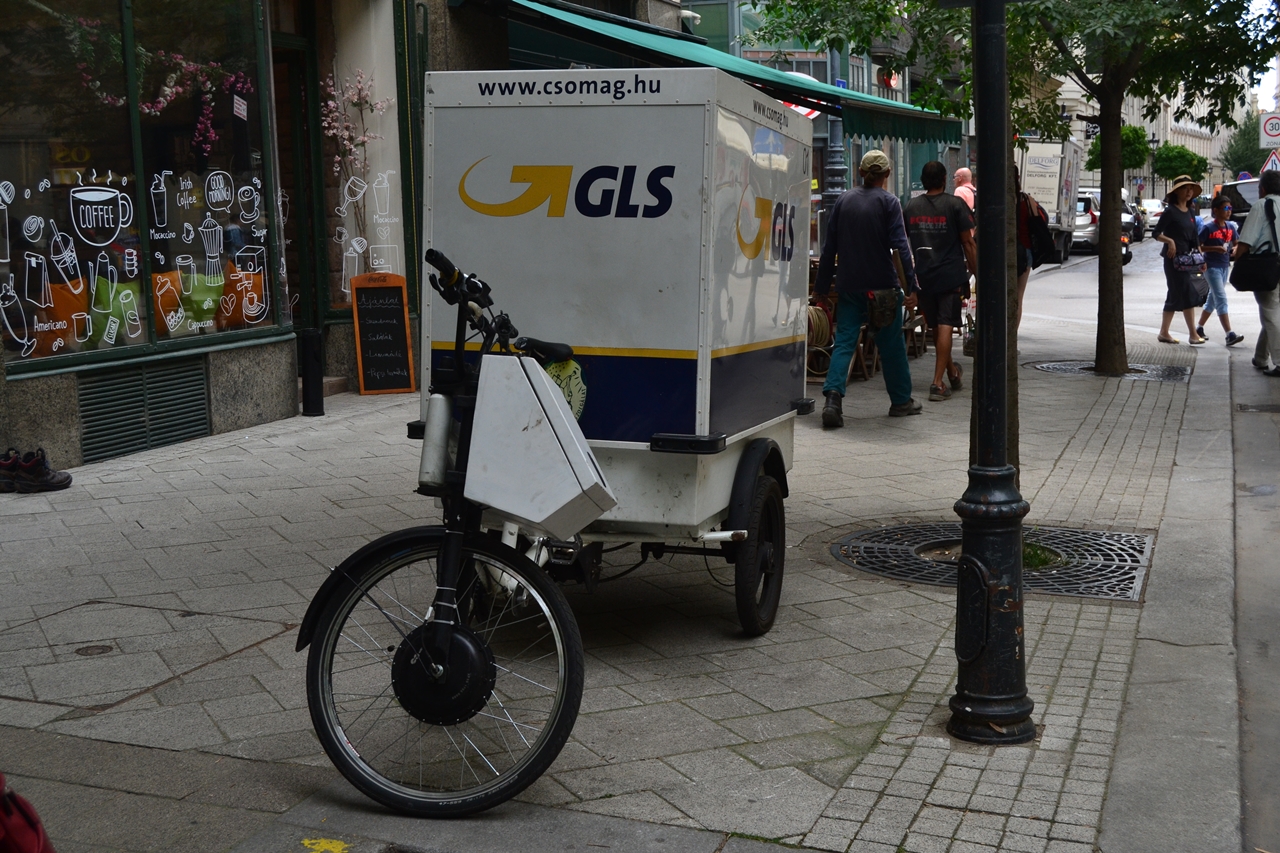
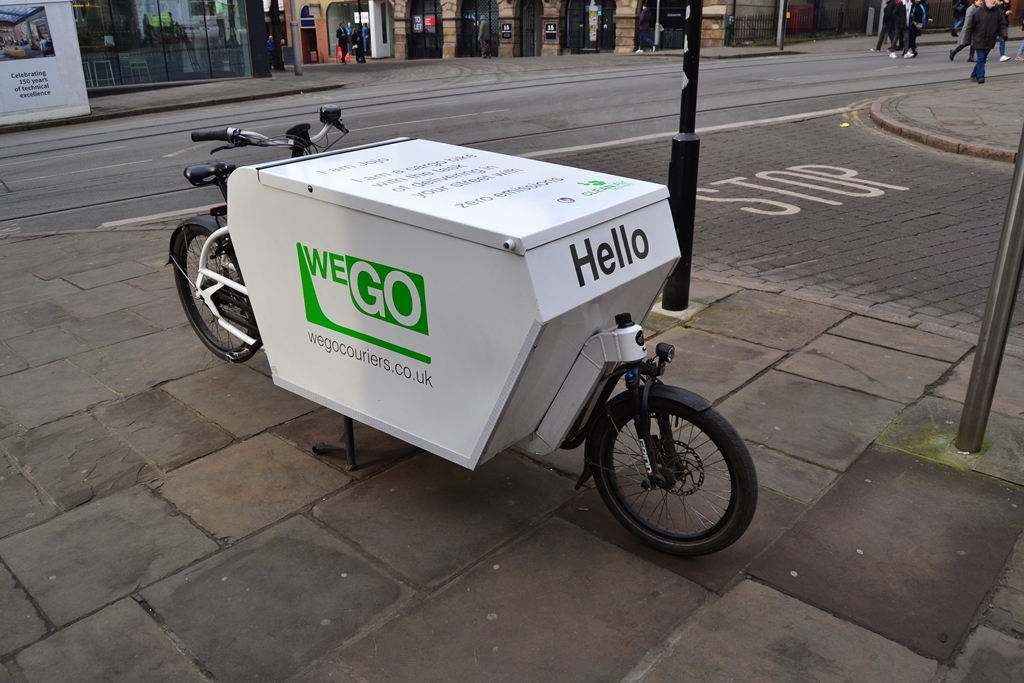
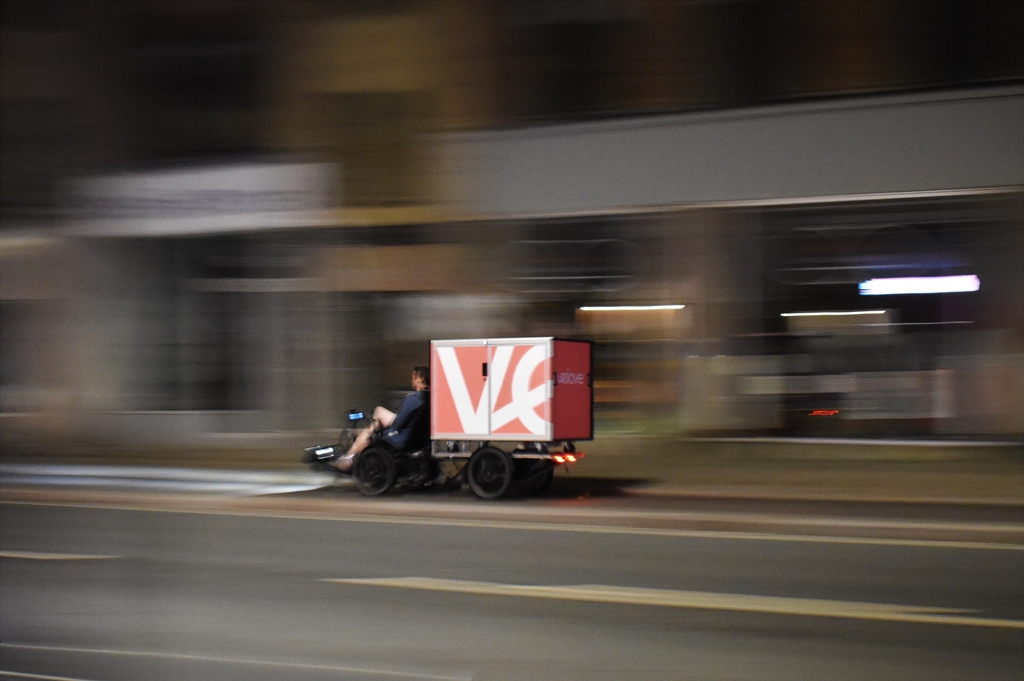
A few years ago, as part of a project, we developed a theoretical solution for Budapest in which part of the deliveries could be made using mobile warehouses and cargo bikes, starting from the geometrical structure of the city’s shopping malls and the road network that supplies them. In this structure, we classify shopping malls into two main groups: we distinguish between sets of the inner ring and radial concentrated sets of delivery locations. In the examined logistics solution, the shopping malls along the inner ring are served by environmentally-friendly trucks, and the corresponding stores of the radial malls can be procured from the inner ring with cargo bikes. After detailed literature research, we can state that the geometrical model-based approach currently being investigated in our study examines an entirely new solution compared to previous research directions.
During our research, we developed a model of the supply system of shopping malls and its geometrical description, we wrote the model of the theoretical and actual state and the model of the ideal (presumably optimal) state, and we also built a macroscopic simulation model with the current Budapest system.
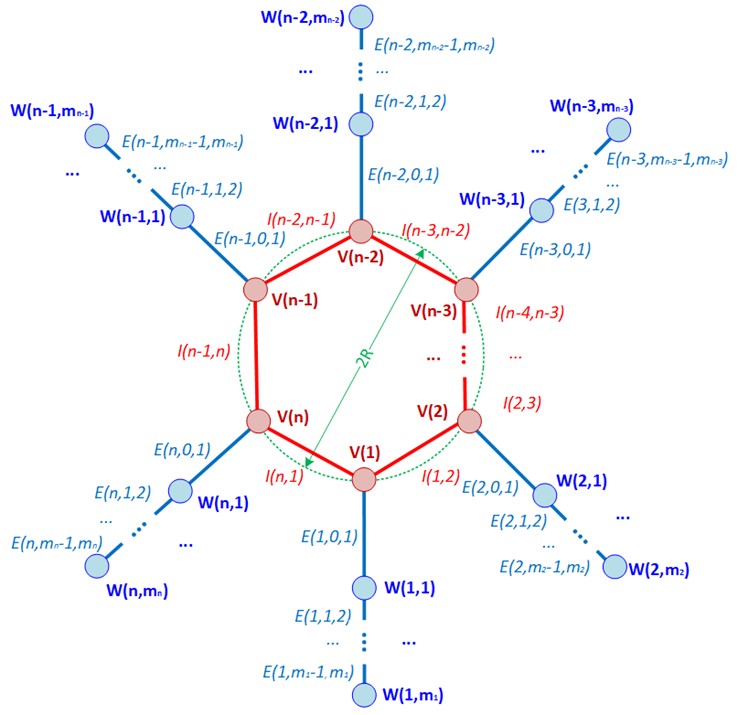
The theoretical geometrical model of the supply system of shopping malls
Using our simulation model, we obtained favorable results for the examined system concept. Based on material flow requirements, we would be able to integrate numerous radial delivery locations into a system using cargo bikes; the total number of required vehicles could come in low. We can also say that the number of small, environmentally-friendly vehicles required can be considered low compared to the otherwise high number of stores that can be included in the system. It is also worth noting here that the use of cargo bikes instead of trucks also relieves the burden on city roads, and the purchase and operation costs of cargo bikes are lower. The favorable results obtained also show that it is worth further investigation in this area.
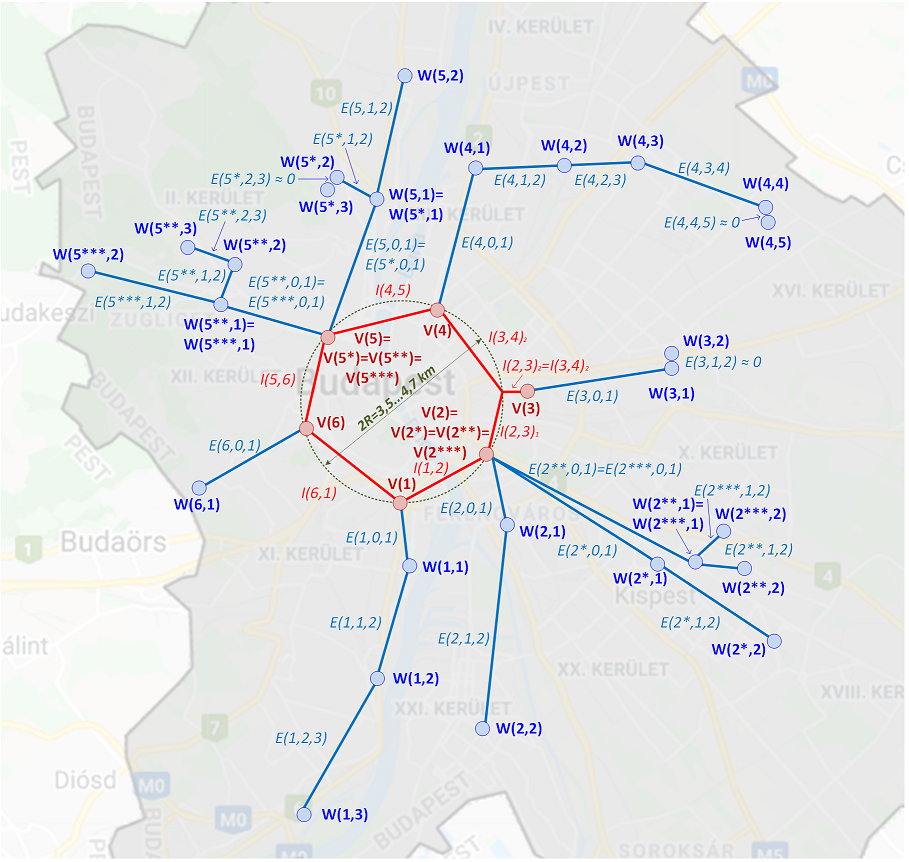
Theoretical geometrical model of the supply system of the shopping malls in Budapest (background: Google Maps)
The main goals of our research project are to determine the geometrical structure that can be called optimal according to the city logistics aspects we have defined and to develop a methodology to examine how the geometrical model of the shopping center supply system and the technological possibilities can determine whether such a concept can be adapted to the city under study, these are the basis of our article.
Significant documents related to the project
Dávid Lajos Sárdi, Krisztián Bóna, PhD. Macroscopic simulation model of a multi-stage, dynamic cargo bike-based logistics system in the supply of shopping malls in Budapest (2018).
Smart Cities Symposium 2018, Prague.
URL: https://ieeexplore.ieee.org/document/8402680/
ISBN: 978-1-5386-5017-2
DOI: 10.1109/SCSP.2018.8402680
Krisztián Bóna, Dávid Lajos Sárdi. A geometrical structure-based new approach for city logistics system planning with cargo bikes and its application for the shopping malls of Budapest (2021).
Applied Sciences, 11 (8), 3300 (Special Issue Intelligent Mobility in Smart Cities).
URL: https://www.mdpi.com/2076-3417/11/8/3300
ISSN 2076-3417
DOI: 10.3390/app11083300
Web of Science IF 2,474 (2019)